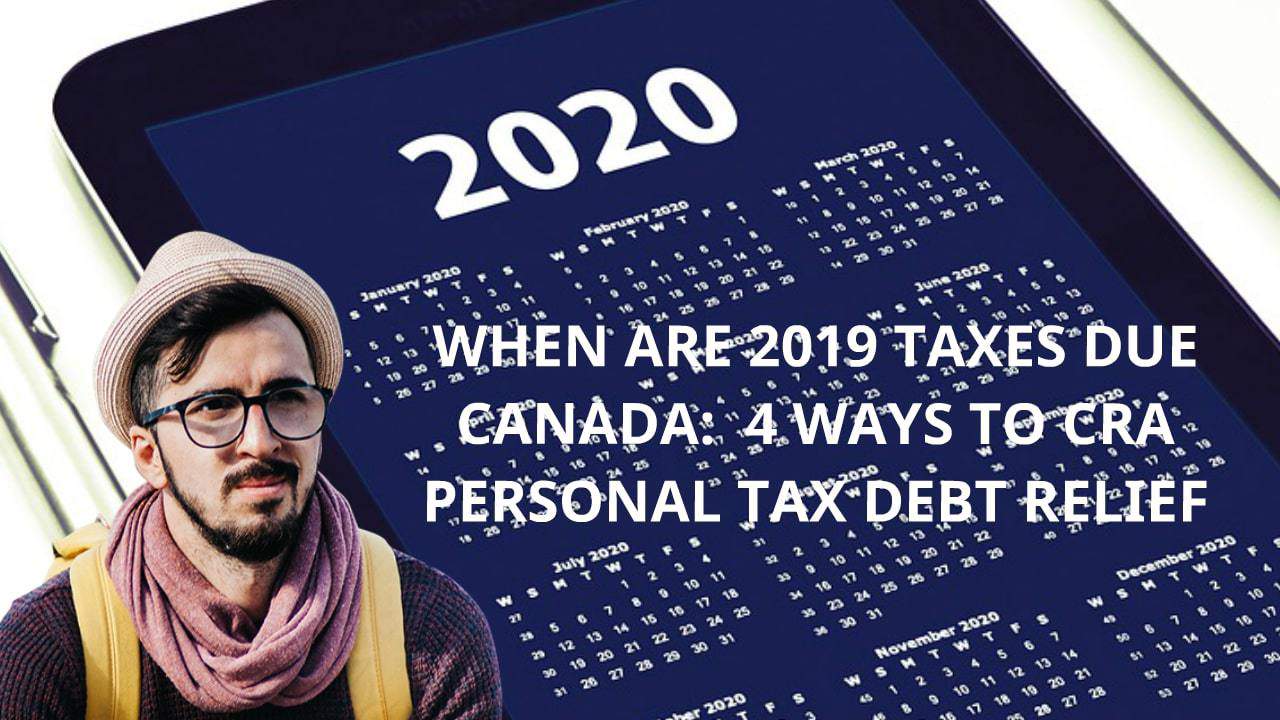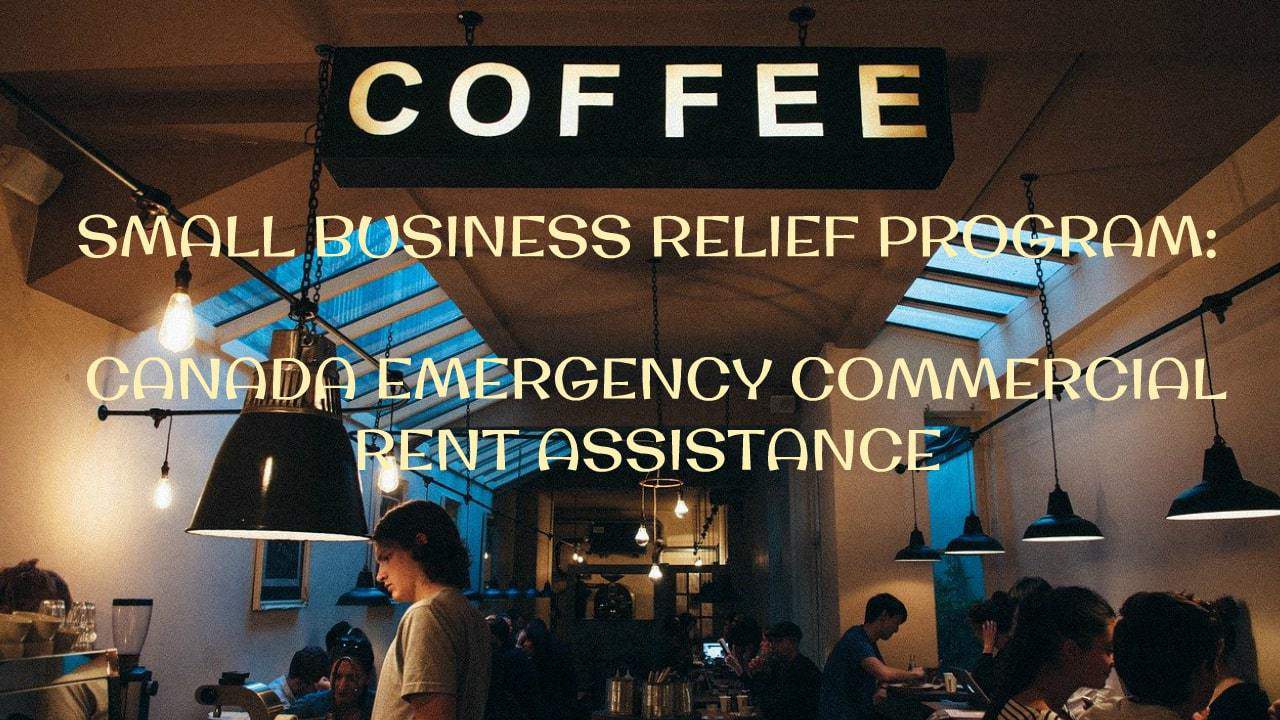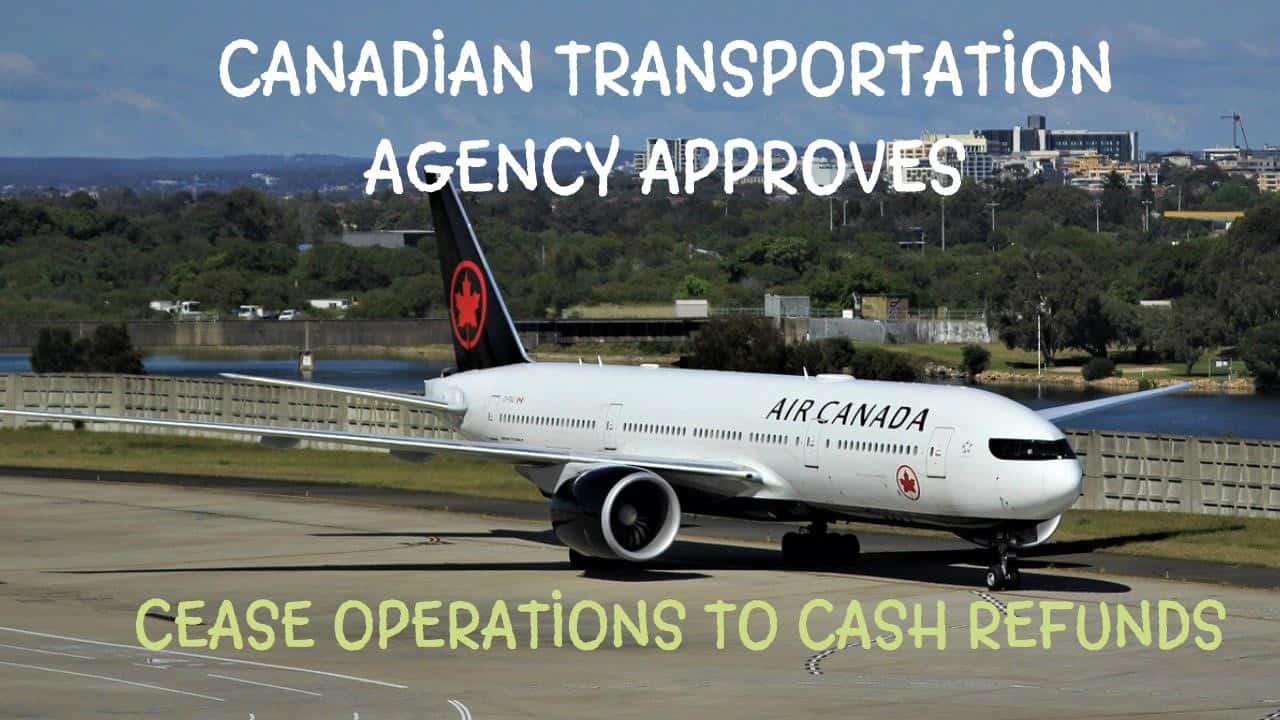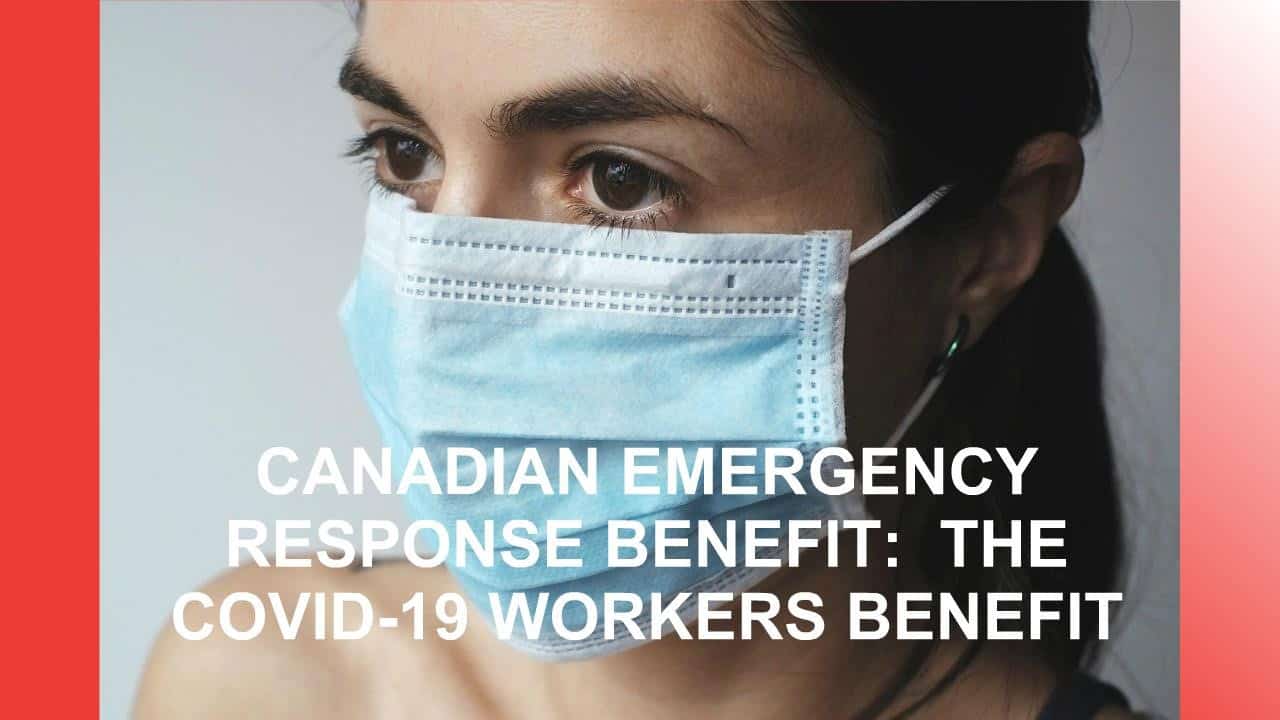
We hope that you and your family are safe, healthy and secure during this COVID-19 pandemic. Ira Smith Trustee & Receiver Inc. is absolutely operational and Ira, in addition to Brandon Smith, is readily available for a telephone consultation or video meeting.
If you would prefer to listen to the audio version of this Brandon Blog, please scroll to the very bottom of the page and click play on the podcast.
Calculate HST and Canadian small business
I read two business reports this week, one from the Canadian Federation of Independent Businesses (CFIB) and one from the Canada Revenue Agency (CRA). They both contain troubling information. The combined effect is bad news.
CRA reports that businesses owe $14.3-billion in unpaid sales tax. CFIB estimates that small businesses in Canada owe a collective $139 billion in debt due to the COVID-19 pandemic as of August 2021.
Almost three-quarters of small businesses that took on debt expect it to take more than a year to repay. For businesses in the hospitality sector, the number jumps to 87 percent, with most saying it will take longer than two years to pay it off. Nearly a quarter worried about ever being able to pay off their debts.
These two reports clearly illustrate that one of the debts Canadian business owners have amassed is collected but unremitted Harmonized Sales Tax (HST). This Brandon Blog will not only describe how to calculate HST but also explain what will happen if you do not pay it over to CRA.
Calculate HST Amounts in Sales and Purchase Documents
You must register for GST/HST if you bill more than $30,000 per year. You do not need to register if you don’t exceed this amount. The HST calculation varies according to the province or territory you operate in. Several provinces have harmonized their provincial sales tax with the Goods and Services Tax (GST) and charge HST on taxable goods and services. GST and provincial sales tax have to be charged in provinces with PST; GST is calculated on the price of each taxable sale of goods or services before PST is added.
HST is calculated on the revenue from each taxable sale that is collectible or collected. The HST on each taxable supply produces an input tax credit that can then be deducted from the HST owing. HST on taxable sales less input tax credits from taxable supplies is the net amount of HST due or refund for the period. Your HST return may need to be filed annually, quarterly, or monthly, depending on how large your business is as measured by total sales and therefore sales taxes also.
CRA has created an HST calculator to help you calculate HST.
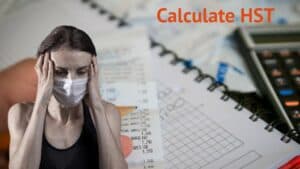
Calculate HST is just one part of small business debt and the COVID-19 impact
In their August 2021 research study, the CFIB uncovered a variety of issues that show the Canadian small business sector is struggling. They found:
- It is estimated that 71% of Canadian small business owners have taken on new debt loads to deal with the effects of the COVID-19 pandemic.
- CFIB estimates that total Canadian small business debt loads related to the coronavirus is around $139 billion, and 76% of businesses that took on debt said it would take them more than one year to repay it.
- Governments should continue business relief measures as government support is winding down since Canadian small businesses are carrying such a burden and are having difficulty regaining their footing. Rent assistance is one such support program.
- Only 39% of small businesses in Canada are currently making sales they consider to be normal for this time of year, despite recent improvements. Most continue to experience declines in revenue.
- About 17% of small businesses in Canada have sales that are half or less of what they should be.
- Four in five businesses are using one or more sources of funding to cope with COVID-19.
- In the arts, recreation & information, and hospitality sectors, 9 of 10 businesses are using some federal, provincial, or other funding to cope with COVID-19.
- In three out of five cases, government relief programs replace less than 30 percent of the COVID-19 shortfall.
- Scaling back federal relief programs comes too quickly for most business owners.
- According to half of the entrepreneurs, repaying their debt is the biggest challenge their business faces on the road to recovery.
Now for the CRA news release that has to do not only with how to calculate HST, but who is and is not paying their HST.
How to calculate HST is only the first part: Businesses owe $14.3-billion in unpaid sales tax, Canada Revenue Agency says
The number of companies falling behind on federal sales tax remittance indicates financial distress, as companies battle the pandemic and supply chain issues. In March 2020, when pandemic restrictions began, the nation owed $11.5 billion in GST and HST to the government. By September 2021, it owed $14.3 billion, an increase of 24 percent over that amount.
As of 2020-21, the CRA has received about 500,000 fewer sales tax returns than the year prior. There were approximately 105,000 fewer sales tax filers, the agency reports. Despite the fact that so many businesses are still operating at some level, they are not even bothering to file their tax returns.
Most businesses file their HST returns on either a once-a-year reporting period or on a quarterly reporting period. Some larger companies report and remit monthly. Quarterly remitters with annual taxable income between $1.5 million and $6 million showed the largest drop in returns by reporting period.
Therefore, it is clear that Canadian businesses are using the tax amounts collected as another source of financing since the pandemic hit. There is no mention of HST in the CFIB study. HST collected but not remitted was not even considered as a source of financing, which it is.

Calculate HST but if you don’t pay, it is a deemed trust
Regardless of the business legal structure, the GST/HST amounts you collect from your customers are considered a deemed trust in favour of the federal government. In an operating business, it takes precedence over whatever debts you owe to other creditors, including secured creditors. The CRA can still get payment from your bank even if the bank does not lend money to you. They can go to the bank where you keep your business funds and get payment there. All that is explained in my blog post about Canada v. Toronto-Dominion Bank.
However, the CRA has the following options:
- garnish bank accounts, accounts receivable, and all other sources of income;
- confiscate and sell assets; and
- pursue other legal remedies.
In my experience, CRA does not typically seize and sell assets. Instead, they pursue garnishments. As in the TD Bank case, they can also just go to whichever of the financial institutions the business banks with and demand the HST funds that have been deposited. When a company owns real property, they may get a judgment from a federal court without notifying the owner, and register that judgment against the title to the real property. Upon refinancing or selling the property, the business owner is required to repay the judgment, plus interest.
Calculate HST: Are HST and COVID debt crushing the life out of your business?
In an environment hamstrung by manufacturing and shipping backlogs, businesses may experience supply shortages and higher delivery costs. Even though paying your bills may be the most emotionally satisfying course of action, it may not be the most practical.
It’s better for your business and your employees if you seek professional advice if you believe that you cannot make next month’s payroll. The following issues cannot be ignored: lenders demanding loan repayment, landlords threatening to end your lease or seize your assets as payment, suppliers cutting off credit or halting deliveries.
The first thing I do as a licensed insolvency trustee is to determine what stage of the business the company is at. The stage the business is at is crucial for me to understand. The choices are:
- Solvent and viable.
- Solvent but not viable.
- Insolvent and viable.
- Insolvent and not viable.
The business can probably restructure with some simple changes to its operations if it is solvent and viable. Insolvent companies that are still viable may be restructured under the provisions of the Bankruptcy and Insolvency Act or the Companies’ Creditors Arrangement Act.
The business can be liquidated or sold if it is not viable, but it is solvent. If it is insolvent and not viable, we are probably looking at bankruptcy or receivership.
A deep dive is required to find out what the correct answer is. For sure I would need to calculate HST collected but unremitted, as that is a deemed trust claim, apart from one exception I describe below.

Calculate HST: What happens to the deemed trust claim in a bankruptcy?
The Excise Tax Act (ETA) defines GST/HST as a deemed trust claim. Under the ETA, a deemed trust claim will include amounts for GST/HST that was collected by the business but not paid to the CRA. There is only one exception. A bankruptcy of the business will rearrange the priorities. In a bankruptcy, the deemed trust GST/HST claim becomes an ordinary unsecured claim. There is no statutory authority for this same outcome in a BIA restructuring Proposal. However, sometimes, as an administrative issue, CRA will allow this treatment also.
According to one school of thought, unremitted amounts included in deposits or loan repayments to a financial institution before bankruptcy continue to be deemed trust claims. Nonetheless, the Supreme Court of Canada clarified GST/HST deemed trusts and secured creditors’ responsibilities for funds received.
The Callidus Capital Corporation v Her Majesty the Queen decision was reversed by the Supreme Court of Canada in 2018. For secured creditors, the decision that the deemed trust provisions of the ETA become inoperative on bankruptcy, and therefore secured creditors are not liable to account for proceeds received from a debtor pre-bankruptcy, is significant.
Calculate HST: GST/HST liability For directors
ETA section 323 increases the CRA‘s power to collect unremitted GST/HST when efforts to collect against corporations prove futile. As a result of the failure of the corporation to remit GST/HST, its directors will be liable for any tax the corporation should have remitted. The directors are jointly and severally liable for the corporation’s unremitted GST/HST.
CRA has the right to look to the directors whether the corporation is in bankruptcy or not. When we calculate HST and discover a company owes net HST, there is another downside to bankruptcy. CRA may now want to claim on the directors sooner because of the HST liability becoming unsecured.

Calculate HST summary
I hope you now see why I feel the combination of the CFIB survey results and the announcement from CRA spells upcoming trouble for Canadian businesses. I also hope you found this calculate HST Brandon Blog post informative. Are you worried because you or your business are dealing with substantial debt challenges and you assume bankruptcy is your only option? If it is too much debt for any reason, call me. It is not your fault that you remain in this way. You have actually been only shown the old ways to try to deal with financial issues. These old ways do not work anymore.
The Ira Smith Team utilizes new modern-day ways to get you out of your debt difficulties while avoiding bankruptcy. We can get you the relief you need and so deserve.
The tension put upon you is big. We know your discomfort factors. We will check out your entire situation and design a new approach that is as unique as you and your problems; financial and emotional. We will take the weight off of your shoulders and blow away the dark cloud hanging over you. We will design a debt settlement strategy for you. We know that we can help you now.
We understand that people and businesses facing financial issues need a realistic lifeline. There is no “one solution fits all” method with the Ira Smith Team. Even though we are licensed insolvency trustees, we have found that not everyone has to file bankruptcy in Canada. The majority of our clients never do. We help many people and companies stay clear of bankruptcy.
That is why we can establish a new restructuring procedure for paying down debt that will be built just for you. It will be as one-of-a-kind as the economic issues and discomfort you are encountering. If any one of these seems familiar to you and you are serious about getting the solution you need, contact the Ira Smith Trustee & Receiver Inc. group today.
Call us now for a no-cost consultation. We will get you or your business back up driving to healthy and balanced trouble-free operations and get rid of the discomfort factors in your life, Starting Over, Starting Now.
We hope that you and your family are safe, healthy and secure during this COVID-19 pandemic. Ira Smith Trustee & Receiver Inc. is absolutely operational and Ira, in addition to Brandon Smith, is readily available for a telephone consultation or video meeting.

